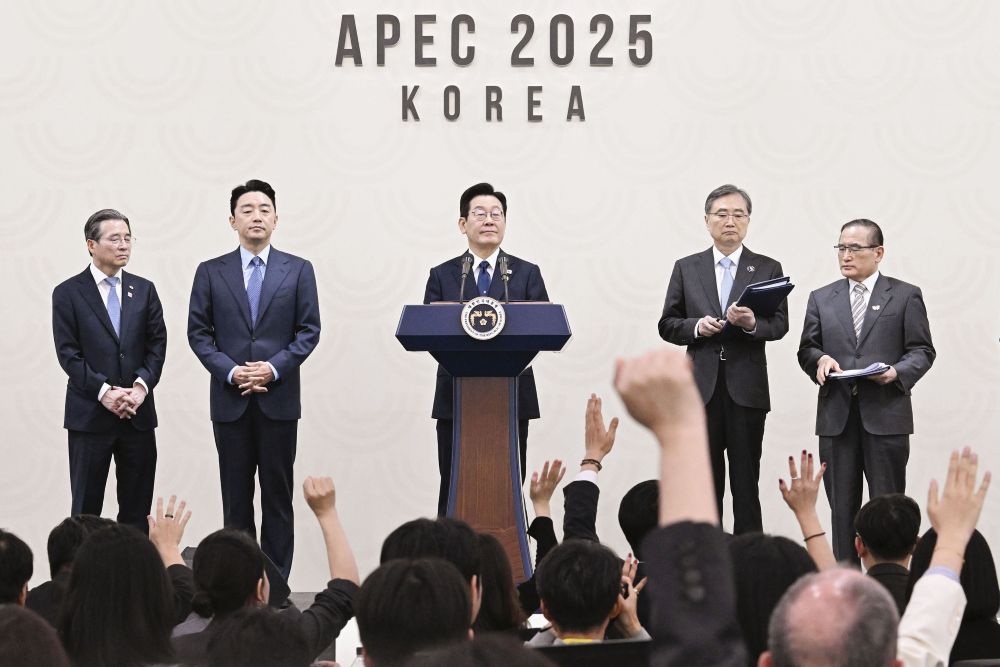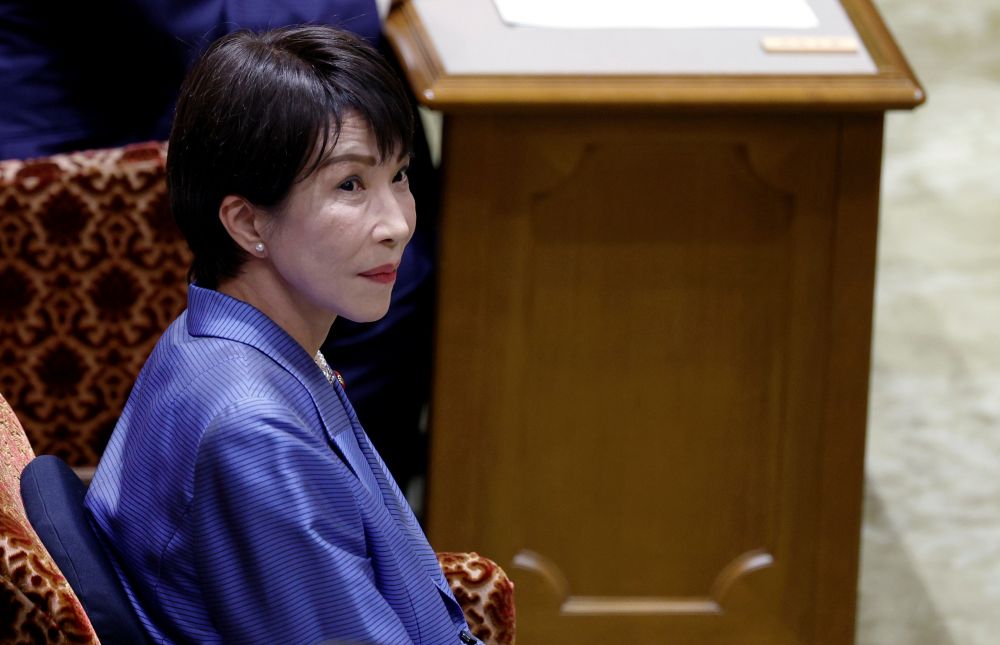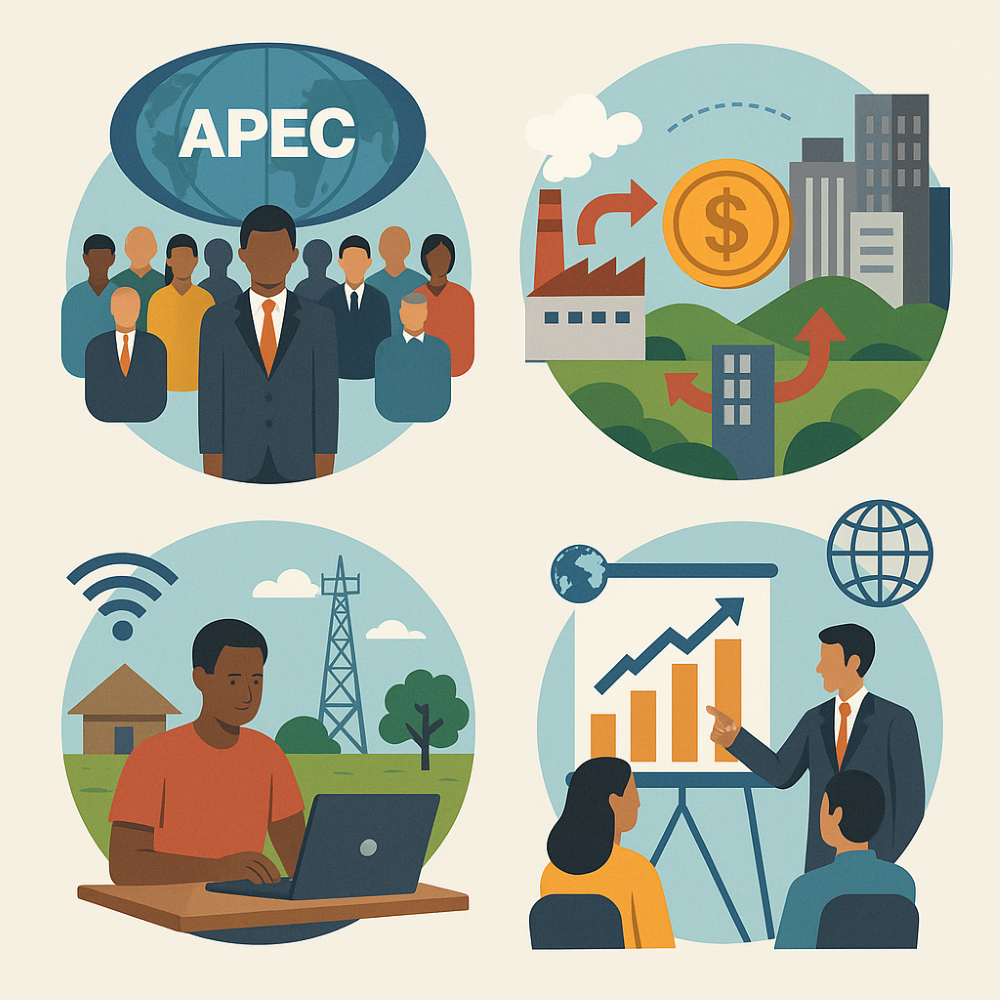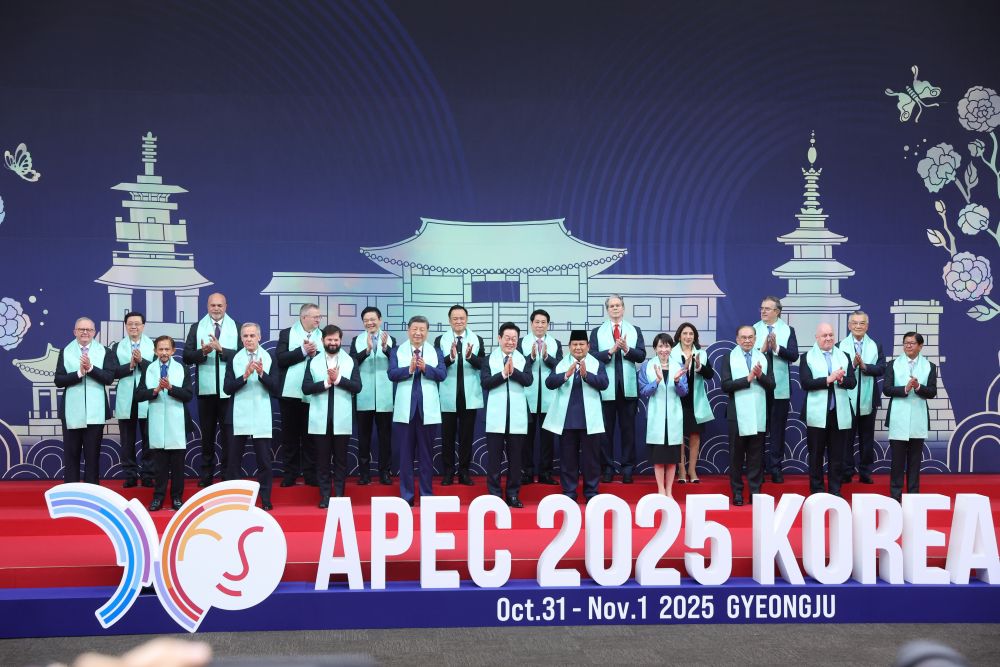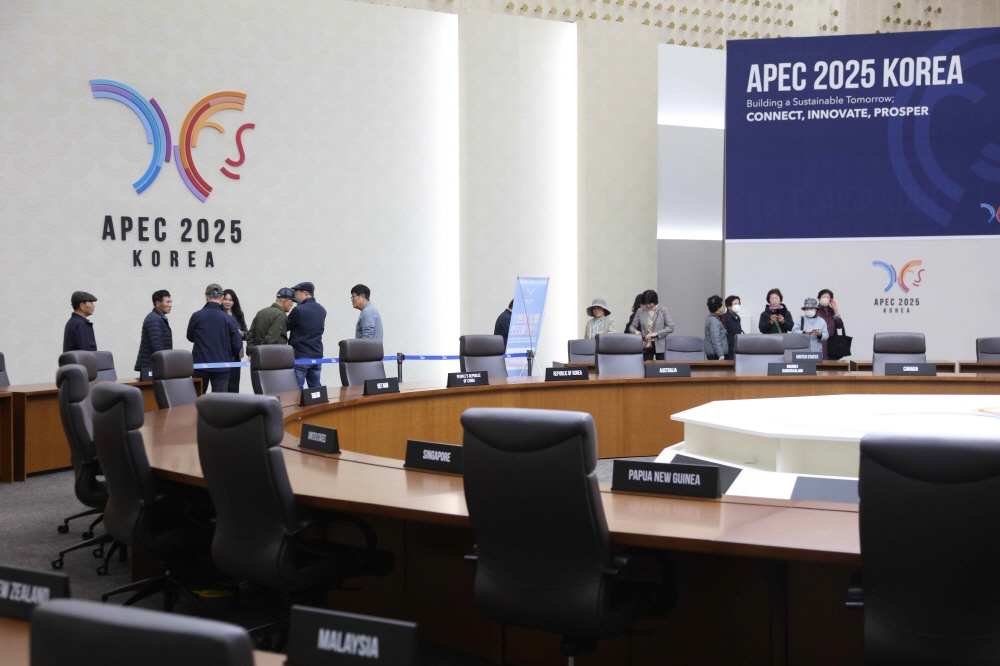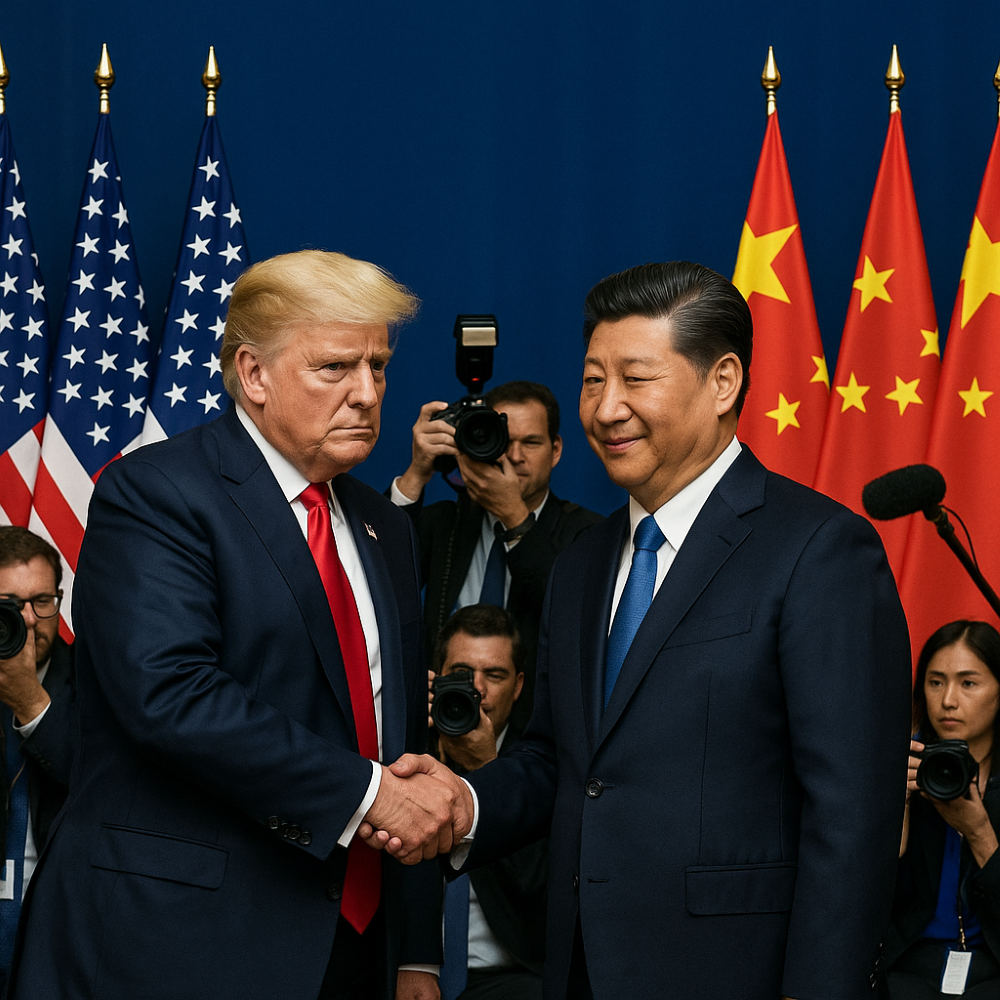- #China
- #South Korea
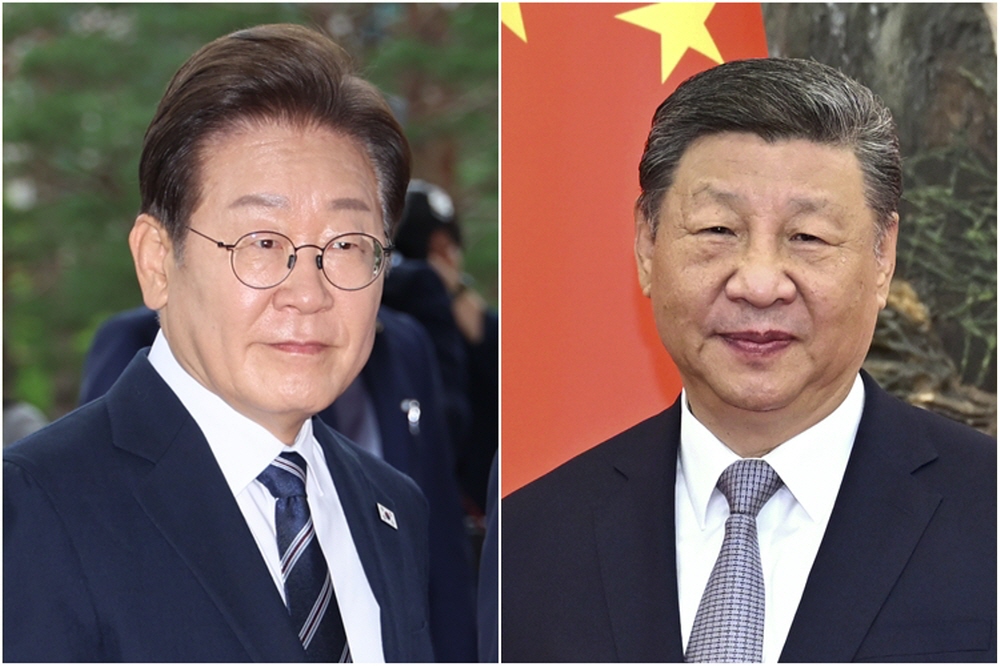
Key Takeaways
- As South Korea hosts APEC 2025 in
Gyeongju, it faces both a rare diplomatic opportunity and a major test amid
intensifying US-China rivalry.
- The anticipated Xi-Trump meeting
and Xi’s strategic use of APEC highlight the forum’s growing political
symbolism and its potential to stabilize great power relations.
- For Seoul, APEC 2025 is a chance to demonstrate middle-power diplomacy—balancing relations with Beijing and Washington while promoting multilateral cooperation in an era of geopolitical uncertainty.
As
South Korea prepares to host the Asia-Pacific Economic Cooperation (APEC) forum
in Gyeongju from October 31 to November 1, the stakes are unusually high. The
expected attendance of China’s top leader Xi Jinping, and his anticipated meeting
with US president Donald Trump, injects geopolitical uncertainty into what is traditionally
a forum for rather predictable economic dialogue. For Seoul, this is a rare opportunity
to shape the regional narrative amid international volatility. To seize it,
however, South Korea must navigate serious challenges—not only strained
China-US relationship and Trump’s tariff agenda, but also its own tensions with
Beijing.
APEC’s
Political Significance
APEC
is often dismissed as a technocratic platform narrowly focused on trade
liberalization and capacity building. Yet, its very structure—voluntary
cooperation among 21 economic powerhouses across the Asia-Pacific—makes it a
unique space for shaping norms and expectations. It represents a model of
cooperation based on economic partnership rather than military alliance, aligning
with China’s preference for economic engagement without security commitments. It
also highlights the role of the United States as a major economic partner in
the region, not solely a security provider. But APEC does not only suit the preferences of
great powers—it also reflects the interests of middle powers like South Korea,
which seek to preserve multilateralism in a way that isn’t anchored to either
side amid intensifying China-US competition.
Compared
to platforms led by the Association of Southeast Asian Nations (ASEAN), APEC
includes a much broader range of Pacific nations and uniquely brings together
the United States, China, Russia, and Taiwan (in the name of Chinese Taipei), making
its vision of the region more inclusive. A decade ago, their co-existence within
APEC was unremarkable. Today, it is extraordinary. For better or worse, the
summit’s political symbolism has grown in tandem with global instability.
Xi’s
Strategic Calculus
Xi
is expected to attend APEC. South Korean President Lee Jae-myung’s decision to
send a special envoy to personally invite Xi underscores Seoul’s desire to
stabilize relations with Beijing, which have been strained in recent years. For
China, participation in APEC is not just about trade—it is an opportunity to present
itself as a responsible driver of regional growth and a leader in global
governance.
In
Xi’s 2025 New Year speech, APEC was one of only five international platforms he
namechecked when talking about China articulating its positions and shouldering
global responsibilities.
At
the 2024 APEC summit in Lima, Xi described APEC as an “incubator” for global
trade rules and a vehicle for green and digital transformation. His speech
emphasized inclusivity and support for emerging economies. His written address
to business leaders at the same summit reinforced these themes, highlighting
shared interests in economic growth and sustainability. These ideas have gained
added significance in light of Xi’s launch of the Global Governance Initiative
September.
At
a deeper level, however, APEC and China are not a perfect match. China’s model
of “socialist market economy” blends state steerage and supervision by the
Chinese Communist Party with market competition, challenging the neoliberal
free-market principles that once defined APEC. Yet in an era of securitization
and economic fragmentation, the neoliberal model is already fading. Although
not all APEC member states embrace Xi’s vision of free trade—one in which China
holds significant leverage—Trump’s attack on free trade and overt unilateralism
have created an opening. APEC offers Xi a timely opportunity to legitimize
China as a defender of economic globalization and multilateralism, in contrast
to America.
Importantly
for Beijing, the long form of APEC is “Asia-Pacific Economic Cooperation,” not
“Indo-Pacific”—a term associated with US-led strategic competition against
China. Beijing avoids the Indo-Pacific label, viewing it as a containment
framework. APEC’s economic focus allows China to engage with the region without
confronting the security narratives that dominate other platforms—especially as
many states remain deeply concerned about Beijing’s grey zone tactics in
disputed territorial claims.
The
Xi-Trump Meeting
The
anticipated meeting between Xi and Trump on the sidelines of APEC has become the
forum’s most closely watched event. The two leaders have not met face-to-face
since 2019, and the post-Cold War era of US “strategic engagement” with China
has given way to deep mistrust and hostility. On October 9, China announced sweeping
new export controls on rare earths critical to high-tech manufacturing—an
escalatory move that positions Beijing as an indispensable global gatekeeper in
artificial intelligence and semiconductor development. Just a day later, Trump hit
back with a retaliatory move: a 100% tariff on Chinese imports, set to take
effect on November 1—the final day of the APEC summit. The sudden collapse of their
tariff truce, brokered in Madrid, added urgency to the anticipated Xi-Trump meeting
in South Korea.
The
China-US rivalry has had global repercussions. Beijing’s recent retaliatory restrictions
on rare earth exports, in response to Trump’s tariffs, disrupted global supply
chains and impacted industries in third countries.
Despite
the latest escalation over Chinese rare earths and US tariffs, the good news is
that there are encouraging signs in the lead-up to APEC. A phone call between Xi
and Trump in September led to a TikTok deal in America approved by both sides
and a high-level visit to China by a US congressional delegation. These
developments underscore APEC’s potential as a platform for reaching political
understanding—without which any agreements on economic cooperation are likely
to be short-lived.
South
Korea, as host, can leverage this moment to rally other APEC members in urging
Beijing and Washington to stabilize their relationship. With the other
economies present, Seoul can amplify the international community’s expectations
for civility, dialogue, and coordination between the two great powers. This could
be middle-power diplomacy at its best—using multilateral forums to work with
other countries to collectively shape great power behaviour in the interest of
the wider international community.
The
Strategic Complexity of China-Korea Relations
To
achieve these potentials, Seoul must navigate its tensions with Beijing. China’s
relationship with South Korea has been rocky. The 2017 THAAD missile defense
dispute and the 2023 verbal spat over Taiwan notably strained ties. Lee has
adopted a cautious approach, balancing engagement with America and China. His
recent summits with Japan (August 23, 2025) and the United States (August 25,
2025), flanked by a special envoy’s visit to China (August 24, 2025), reflected
efforts to improve relations with Beijing while deepening strategic cooperation
with Tokyo and Washington.
China
shares South Korea’s interest in stabilizing ties. Seoul is a high-value target
for Beijing due to its economic and technological clout, strategic location, and
centrality in the US-led regional security architecture.
Xi’s
June 2025 remarks urging Seoul to elevate its “strategic cooperative
partnership” with China and reminding Lee that “China and South Korea are close
neighbours that cannot be moved away” can be understood in the context of
Korea-US relations. While the United States remains Seoul’s key ally, its
commitment to South Korea is ultimately contingent; by contrast, China’s
proximity to South Korea is permanent. The implication
of Xi’s comment is clear: it is in Seoul’s interest to maintain stable ties
with Beijing, even if doing so complicates its alliance with Washington.
This sentiment was echoed by Chinese foreign minister Wang Yi in
September, who urged Seoul to be a partner “not only in
name but also in substance.” Chinese media have been more blunt, criticizing Lee’s
doctrine of “pragmatic flexibility” as “double-faced.” While China tolerates
Seoul’s tilt towards Washington and Tokyo, it warns against hostility—particularly
in the form of trade or tech restrictions and any deviation from Beijing’s stance
on Taiwan, which Xi has called the “core of the core” of China’s interests.
Although
Beijing frames Seoul’s unwelcome actions as pandering to Washington, South
Korea’s own competitive economic advantages and concerns about Chinese economic
coercion also limit deeper economic integration with China. A recent statement
by a senior South Korean official, which rules out the discussion of Seoul’s
role in a potential Taiwan conflict at the first Trump-Lee summit, respected
Chinese sensitivities. However, given that Beijing’s takeover of Taiwan would
destabilize the US-led regional security architecture—on which South Korea’s
security heavily depends—and could embolden North Korean opportunism, Seoul’s
position on the Taiwan question remains strategically complex.
China’s
growing ties with North Korea add another layer of complexity. Xi’s hosting of
Kim Jong-un at Beijing’s military parade and frequent high-level exchanges
signal deepening coordination. South Korea’s efforts to engage Pyongyang will
falter without Beijing’s support, underscoring the strategic importance of
maintaining a functional partnership with China.
Conclusion:
Diplomacy in an Age of Geopolitical Uncertainty
This
is not a moment to fundamentally shift from great power competition to global
cooperation—the conditions aren’t yet in place. But it is an opportunity to use
multilateral institutions to contain the risks of rivalry and remind great
powers to consider the interests of others. South Korea should seize its role
as APEC host to shape the regional agenda, steering Xi and Trump towards
recognising the broader costs of escalation and promoting responsible
management of their rivalry.
Dr Olivia Cheung is Lecturer in Politics at the Department of European & International Studies and Affiliate of the Lau China Institute at King’s College London. She is also China Fellow at the Centre for Security, Diplomacy and Strategy at the Brussels School of Governance, Vrije Universiteit Brussel. She is the author or co-author of three books, including Factional-Ideological Conflicts in Chinese Politics, The Political Thought of Xi Jinping, and the forthcoming China’s Global Strategy under Xi Jinping.
